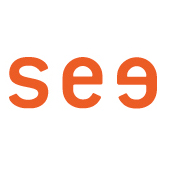Moodle offers the possibilities to support cooperative teaching and learning methods. The following tools are available for synchronous and asynchronous communication and collaboration in courses:
Web forum
An internet forum (from lat. forum, market place), also known as web forum, discussion forum, computer
forum, online forum or bulletin board, is a virtual place to exchange and archive thoughts, opinions and
experiences. Communication in forums is asynchronous, i.e. a post is not answered immediately and immediately, but
with a time delay.
Chat (from the English to chat [tʃæt] 'chatting', 'talking'; also online chat) refers to the predominantly synchronous electronic communication by means of written text in real time, usually via the Internet. The first form of online chat was offered by Compuserve in 1980 in the form of the "CB Simulator". The Usenet and, in a broader sense, CB radio also had chat functions. Within a chat, synchronous and asynchronous communication is
possible at the same time.
A wiki (Hawaiian for "fast"), also called WikiWiki or WikiWeb, is a website whose content can not only be read by visitors, but also edited and changed directly in the web browser.
The goal is often to gather experience and knowledge collectively (collective intelligence) and to document it
in a form understandable to the target group. The authors work together on texts, which may be
supplemented by photos or other media (collaborative writing, e-collaboration). This is made possible by a
simplified content management system, the so-called Wiki software or Wiki engine.
The best known wiki is the online encyclopaedia Wikipedia, which uses the wiki software MediaWiki. A single
document, a wiki page, can be changed with a few clicks (Edit button, Change text and Save button).
Tasks
A tool in Moodle that allows teachers to set up a task and publish the material, web links and instructions
needed to solve it on the course page. Students can asynchronously upload their solutions as files or enter them in text form. Lecturers can review the tasks asynchronously and give individual feedback to the students
asynchronously as well and open a new submission option. The feedback can be visible to everyone or only
individually. Peer to peer - evaluation of students among each other is also optionally possible.
Glossary
With glossaries you can create dictionaries or FAQ lists. First you create the glossary, then you enter terms and explanations. Glossaries can be created by teachers or as learning activities by students.
Journal * Learning diary
The journal makes it possible to receive feedback from students on specific topics, forms of learning and content which can only be read by the author and the teacher. The journal can be used to write learning or project diaries and other reports and self-observations.
